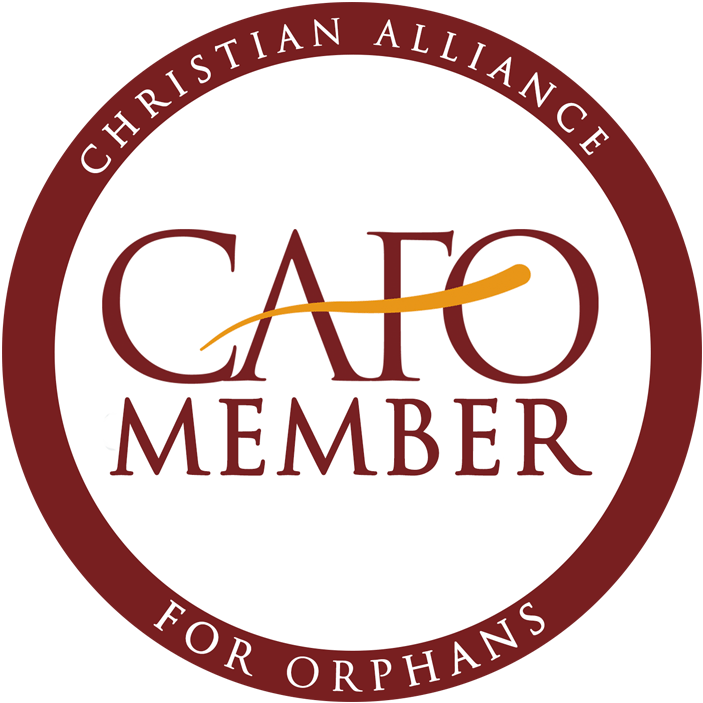“Holidays are hard even when u have found "new family" because u still feel awkward and ur mom and dad are not there so though it is easier it sill makes u sad because u are reminded of what u don't have.”
— FosterClub member Divine, age 21, from Wisconsin, in foster care more than 3 years
Try these 12 ideas to support your foster children during the holidays.
1. Prepare the foster youth in your care for the holidays in your home
Have a discussion with the young person about your family’s holiday customs. Do you celebrate over multiple days, or is there one “main” celebration? Are there religious customs? Will gifts be exchanged? What should they wear? Who will they meet? What preparations need to be done in advance? Will there be visitors to the home? Will they be taken on visits to the homes of other family or friends? And in all of these events, will your youth be expected to participate? Knowing what to expect will help to decrease anxiety around the holidays. Avoid surprises and you will decrease seasonal tensions.
2. Prepare friends and family before you visit
Let people know in advance about new family members in your home. Surprising a host or hostess at the door with a “new” foster youth may set up an awkward situation — such as a scramble to set an extra place at the table — making the young person feel like an imposition right from the start of the visit. Your preparation of friends should help cut down on awkward, but reasonable questions such as “who are you?” or “where did you come from?”
3. Remember confidentiality
You may receive well intended but prying questions from those you visit with over the holidays. If your young person is new to your home, it is natural that family members ask questions about your youth’s background. Understand that questions are generally not meant to be insensitive or rude, but simply come from a place of not knowing much about foster care. Think in advance about how to answer these questions while maintaining your youth’s confidentiality. Use the opportunity to educate interested family and friends. Discuss with your young person how they would like to be introduced and what is appropriate to share about their history with your family and friends. (Remember, they have no obligation to reveal their past.
4. Arrange meeting your family in advance, if possible
The hustle and bustle of the holidays can make it particularly chaotic for your young person to participate in your family traditions. Anxiety may run high for young people already, and the stress of meeting your relatives may be a lot to deal with. If possible, you can arrange a casual “meeting” in advance of “main events.” If it is not possible or practical to meet beforehand, make a list of names of some of the people they’ll meet and their connection to you. You can also encourage a quick call from relatives you plan to visit to deliver a personal message of “we are excited to met you” so that your youth knows they will be welcome.
5. Have extra presents ready to help offset differences
It should not be expected that all relatives purchase presents for your youth. Be prepared with other small gifts and for those family members that express concern over not having brought a gift, offer one of your “backups” for them to place under the tree. Extra presents may be addressed “from Santa”, even for older youth, to help offset a larger number of gifts other children may receive at the same time. Children often keep count of the number of gifts received (right or wrong) and use it to compare with other kids, so sometimes quantity is important.
6. Facilitate visits with loved ones
The holidays can be a busy time for everyone including foster parents and caseworkers. But it is especially important during this time of year to help your young person arrange for visits with loved ones. Don’t allow busy schedules to mean the postponement of these important visits. Try to get permission for your youth to make phone calls to relatives (if long distance charges are an issue, ask if calls can be placed from the foster care agency or provide a local business or individual to “donate” by allowing the use of their phone). A youth may wish to extend holiday wishes to relatives and friends from an old eighborhood, but may need your help getting phone numbers together. Use the opportunity to help the youth develop their own address book.
7. Help them make sure their loved ones are okay
Young people may worry that their family members are struggling through the holidays. If homelessness has been a regular issue, the winter season may bring cold weather and extreme hardship. Your youth may experience guilt if they feel a loved one is struggling while they, the youth, are living in comfort. Knowing that a biological parent or sibling has shelter from the cold or has their other basic needs met may ease a young person’s mind through the always emotional holidays.
8. Extend an invitation
If it is safe and allowed by your foster care agency, consider extending an invitation to siblings or bioparents through the holidays. It need not be an invitation to your “main” holiday event, consider a “special” dinner for your youth to celebrate with their loved ones. If this not a possibility to do within your home, consider arranging a visit at a local restaurant (ask the caseworker is it would be appropriate for the visit to be unsupervised or if your supervision would suffice). Extending an invitation to their loved ones need not signal to a young person that you support their bio-family’s lifestyle or choices — rather it tells a young person that you respect their wish to stay connected to family. You will also send a message to the youth that that aren’t being put in a position to “choose” your family over their bio-family and that it is possible to have a relationship with all the people they care about.
9. Understand and encourage your youth’s own traditions and beliefs
Encourage discussion about the holiday traditions your young person experienced prior to being in foster care, or even celebrations they liked while living with other foster families. Incorporate the traditions the youth cherishes into your own family celebration, if possible. Use the opportunity to investigate the youth’s culture and research customary traditions. If the young person holds a religious belief different from yours, or if their family did, check into the traditions customarily surrounding those beliefs.
10. Assist in purchasing or making holiday gifts or in sending cards to their family and friends
Allow young people to purchase small gifts for their relatives, or help them craft homemade gifts. Help send holiday cards to those that they want to stay connected with. The list of people that your youth wishes to send cards and gifts to should be left completely to the youth, although precautions may be taken to ensure safety (for example, a return address may be left off the package, or use the address of the foster care agency) and compliance with any court orders.
11. Understand if they pull away
Despite your best efforts, a young person may simply withdraw during the holidays. Understand that this detachment most likely is not intended to be an insult or a reflection of how they feel about you, but rather is their own coping mechanism. Allow for “downtime” during the holidays that will allow the youth some time to themselves if they need it (although some youth would prefer to stay busy to keep their mind off other things — you will need to make a decision based on your knowledge of the young person). Be sure to fit in one-on-one time, personal time for your youth and you to talk through what they are feeling during this emotional and often confusing time of year.
12. Call youth who formerly lived with you
The holidays can be a particularly tough time for youth who have recently aged out of foster care. They may not have people to visit or a place to go for the holidays. In addition, young people commonly struggle financially when they first leave foster care. A single phone call may lift their spirits and signal that you continue to care for them and treasure their friendship. Be sure to include these youth on your own holiday card list. A small token gift or gift basket of homemade holiday goodies may be especially appreciated.










